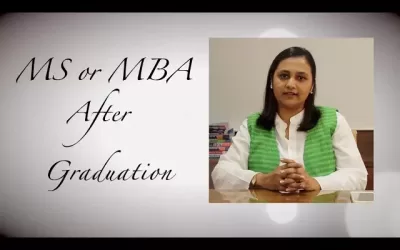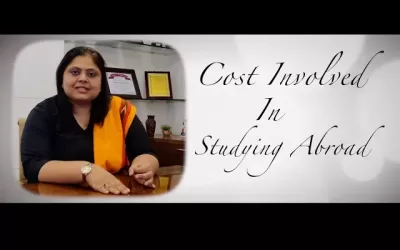Global Student Journey: Documentation Required for Studying Overseas
 Documentation Required for Studying Overseas is your indispensable resource. It is designed to demystify the complex paperwork and ensure a smooth transition into your chosen academic pursuit.
Documentation Required for Studying Overseas is your indispensable resource. It is designed to demystify the complex paperwork and ensure a smooth transition into your chosen academic pursuit.
A university application package documents a student’s academic and personal achievements. A host of queries line up in a student’s mind making an application a challenging task. What documents do I need, how do I get them, etc.?
An application package consists of not just the application form, but also the supplementary documents that are submitted along with it. Each university will specify the documents that should be put forward and it is important to present all necessary papers, otherwise, the application may be rejected because it is incomplete. Every university around the world may not require the same set of documents.
Here is a general list of Documentation Required for Studying Overseas during the application process.
Application form
Most university applications are now online. Fill in all the details carefully. Make sure your application form is complete and error-free before you submit it.
Official Transcripts
A document that mentions your academic details like subjects taken, grades obtained, and hours spent in each subject. While most universities allow the transcripts to be uploaded online.
Standardized test scores
Depending on the level of study you are planning to pursue, you will be required to submit scores of either SAT (for US undergraduate applicants), GRE, or GMAT. Most universities will also ask for English proficiency scores (TOEFL/IELTS).
All test scores have a validity period. Ensure that your score is valid while submitting it to the university.
Statement of Purpose
A Statement of Purpose (SOP) assists the admission committee to get to know you better. It talks about your choice of course/university, goals, achievements, personal interests, and future plans.
An SOP is also called a Letter of Motivation, Personal Statement, or Letter of Intent. Make sure this statement highlights all your abilities & talents and that it is well written.
Resume
A resume is a tool to set yourself apart from the crowd and display your qualifications & skills and pen down your personal, academic & occupational details. This is your opportunity to show the admissions committee what you have accomplished and where your experience lies.
Letters of Recommendation/ Reference
Nearly every university will ask you for reference letters from either teachers/professors or, in the case of a professional program, from an employer. These letters prove to be an important source of information about you, the applicant. It highlights your strengths, capabilities, and caliber. It is therefore important to get letters from professors/employers who have known you well and will write a strong letter for you.
Certificates for extracurricular activities
These documents add value to your application as they represent all your non-academic interests and occupations. Your interests can range from anything from theatre/drama to sports, debating to teaching slum children, and from advocating for the environment to dabbling in dance. Extracurricular pursuits are especially important when you are applying for an undergraduate degree.
Work Experience Certificate
This is different from an employer reference letter and is generally needed for postgraduate applications. This letter affirms your tenure, designation, and work profile with an organization/ company. It also draws attention to your professional credentials recounting your work ethic, performance, and general behavior.
Financial Documents
 Most universities have their own financial certification forms available as part of the application. Usually, the form has to be submitted along with a bank statement/affidavit of support. A bank statement is issued on the bank’s letterhead with a seal & authorized signature bearing the date, account number, and the amount in the account. The statement should reflect that the applicant (or) sponsor has sufficient funds to bear all the academic expenses.
Most universities have their own financial certification forms available as part of the application. Usually, the form has to be submitted along with a bank statement/affidavit of support. A bank statement is issued on the bank’s letterhead with a seal & authorized signature bearing the date, account number, and the amount in the account. The statement should reflect that the applicant (or) sponsor has sufficient funds to bear all the academic expenses.
An affidavit of support is usually notarized on stamp paper, signed by the applicant’s sponsor, and states that the sponsor will be supporting the applicant financially. It also states that they have enough economic resources to bear the total tuition fee and living expenses of the applicant.
Passport copy and photos
These may not necessarily be needed for the application, but once an admission offer is made to you, it will be required for the issue of a visa. Make sure that you submit the requisite number of passport copies and that the dimensions of your photos are correct. Remember that all universities (including those in non-English speaking countries) will require that your documents are all in English. If there are any documents that are in any other language, ensure that you get them officially translated before submitting them.
Frequently Asked Questions (FAQs) – Documentation Required for Studying Overseas
Q1: What documents are typically required for studying abroad?
Commonly Documentation Required includes a valid passport, student visa, admission letter from the university, financial proofs, health and medical records, and educational certificates.
Q2: How early should I start collecting my study abroad documents?
Begin the process as early as possible. Gathering documents may take several weeks or even months, especially if there are additional steps like getting transcripts or language proficiency certificates.
Q3: How do I apply for a student visa?
Research the visa requirements of your chosen destination country’s consulate or embassy. Usually, you’ll need to fill out an application form, provide proof of acceptance to a school, show financial stability, and attend an interview.
Q4: What should I include in my admission application documents?
Admission documents typically include academic transcripts, letters of recommendation, a statement of purpose, standardized test scores (like SAT or TOEFL), and any additional materials required by the university.
Q5: Can I apply for a student visa before receiving an admission offer?
It’s generally recommended to wait until you’ve been accepted into a program before applying for a student visa, as the acceptance letter is often required for visa application.
Q6: How can I prove my financial capability for a student visa?
This varies by country, but it often involves submitting bank statements, affidavits of support, scholarship award letters, or other proof of funds that demonstrate your ability to cover tuition and living expenses.
Q7: Are health and medical records necessary for studying abroad?
Yes, health and medical records, including immunization records and health insurance coverage, are often required to ensure your safety and well-being while studying overseas.
Q8: Can I submit digital copies of my documents, or do I need hard copies?
Check with your educational institution and the consulate of your destination country. Some may require physical copies, while others accept scanned or digital versions.
Q9: Do I need to get my documents translated if they are not in English?
If your documents are not in English, you may need to provide official translations. Check with your chosen university and the embassy of your destination country for specific requirements.
Q10: How do I stay organized with so many documents to manage?
Create a checklist and digital or physical folder for each document category. Keep track of deadlines, requirements, and submitted documents to stay organized.
Q11: What do I do if I’m missing a required document?
Contact the relevant authorities, such as the university’s admissions office or the consulate, immediately. They might provide guidance or extensions, but it’s crucial to address the situation promptly.
Q12: Can I delegate document collection to an agency or service?
While some services can assist with document collection, it’s recommended to handle your own documents to ensure accuracy and avoid potential issues.






